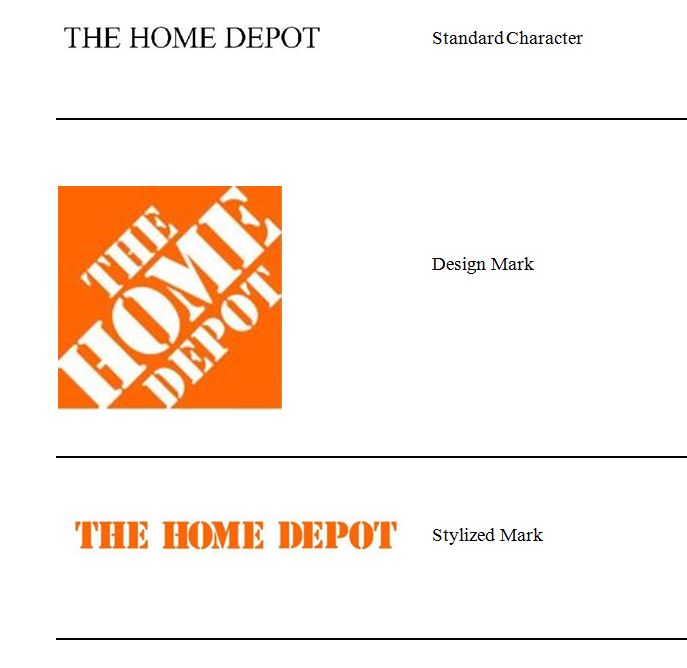Brand Names And Logos – When Does It Make Sense To Register Only A Logo?
A trademark may be registered either as a standard character (i.e. just a name regardless of how it appears) or a special form mark, which includes stylized marks (the name in a fancy font) and design marks (usually a logo or a logo and words).
Examples:
 Given that trademark registration can be a costly process – filing fees for initial application for registering a single trademark are anywhere from $275 to $375 per class – smart business owners seeking to protect a unique brand will evaluate whether and how to register for a standard character trademark (name only) and/or logo trademarks.
Given that trademark registration can be a costly process – filing fees for initial application for registering a single trademark are anywhere from $275 to $375 per class – smart business owners seeking to protect a unique brand will evaluate whether and how to register for a standard character trademark (name only) and/or logo trademarks.
It takes time for a brand logo to build value, so presumably it is a priority to obtain trademark protection for the brand name itself. However, there are at least two instances where it might make sense to register only a design mark. If the Trademark Office is likely to deny a registration for a standard character mark for a brand name, either because it is descriptive, or too similar to another registered trademark, obtaining registration of a design mark that incorporates the name will afford some level of trademark protection.
Situation #1: The name itself cannot be registered because it is descriptive or generic.
A purely descriptive word that is lacking sufficient distinctiveness is not eligible for trademark registration. A fruit company could not, for example, register “Red Apples” in connection with its Macintoshes.
Read More
